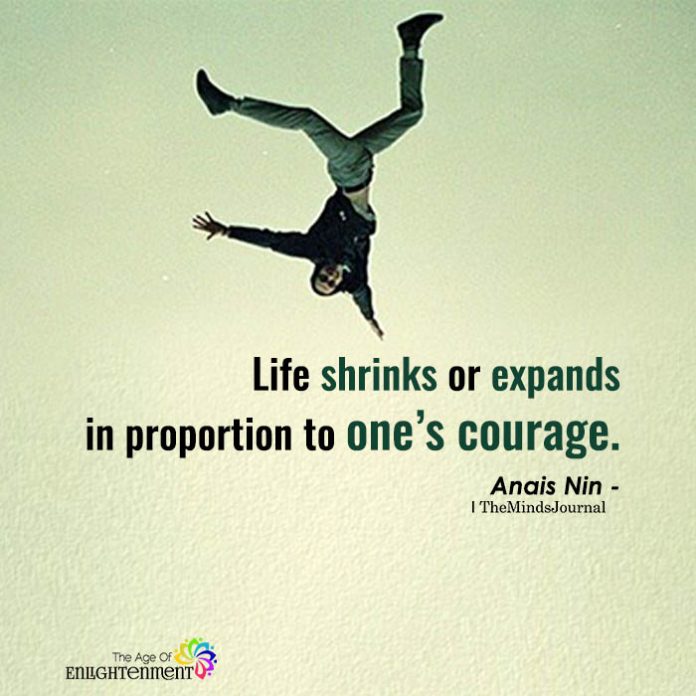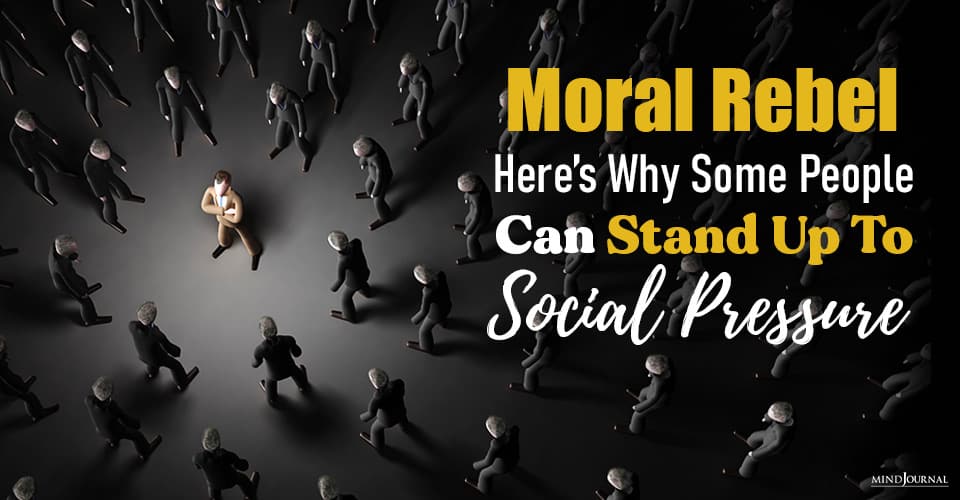Are you afraid to call out bad behaviour? Do you know it’s not too hard to stand up to social pressure and develop your inner moral rebel? Read on to know why some people have managed to stop being a silent bystander.
Utah Senator Mitt Romney voted in February to convict President Donald Trump on the charge of abuse of power, becoming the first senator ever to vote against his own party’s president in an impeachment trial.
Two Theranos employees—Erika Cheung and Tyler Shultz—spoke out about their concerns regarding the company’s practices, even though they knew they could face lasting personal and professional repercussions.
Actors Ashley Judd and Rose McGowan came forward to report Harvey Weinstein’s sexual harassment and assault, despite his threats to ruin their careers if they did so.
All of these people spoke up to call out bad behaviour, even in the face of immense pressure to stay silent. Although the specifics of each of these cases are quite different, what each of these people shares is a willingness to take action. Psychologists like me describe those who are willing to defend their principles in the face of potentially negative social consequences such as disapproval, ostracism, and career setbacks as “moral rebels.”
Read Six Tips for Speaking Up Against Bad Behavior
Moral rebels speak up in all types of situations—to tell a bully to cut it out, to confront a friend who uses a racist slur, to report a colleague who engages in corporate fraud. What enables someone to call out bad behaviour, even if doing so may have costs?
The traits of a moral rebel
First, moral rebels generally feel good about themselves. They tend to have high self-esteem and to feel confident about their own judgment, values, and ability. They also believe their own views are superior to those of others, and thus that they have a social responsibility to share those beliefs.
Moral rebels are also less socially inhibited than others. They aren’t worried about feeling embarrassed or having an awkward interaction. Perhaps most importantly, they are far less concerned about conforming to the crowd. So, when they have to choose between fitting in and doing the right thing, they will probably choose to do what they see as right.
Read The Positive Reframe: #1 Way To Boost Your Courage And Resilience Today
Research in neuroscience reveals that people’s ability to stand up to social influence is reflected in anatomical differences in the brain. People who are more concerned about fitting in show more gray matter volume in one particular part of the brain, the lateral orbitofrontal cortex. This area right behind your eyebrows creates memories of events that led to negative outcomes. It helps guide you away from things you want to avoid the next time around—such as being rejected by your group.
People who are more concerned about conforming to their group also show more activity in two other brain circuits: one that responds to social pain—like when you experience rejection—and another that tries to understand others’ thoughts and feelings. In other words, those who feel worst when excluded by their group try the hardest to fit in.
Read 16 Research-Based Psychological Hacks for Your Social Life
What does this suggest about moral rebels? For some people, feeling like you’re different than everyone else feels really bad, even at a neurological level. For other people, it may not matter as much, which makes it easier for them to stand up to social pressure.
These characteristics are totally agnostic as to what the moral rebel is standing up for. You could be the lone anti-abortion voice in your very liberal family or the lone abortion rights advocate in your very conservative family. In either scenario, it’s about standing up to social pressure to stay silent—and that pressure of course could be applied about anything.
The path of a moral rebel
What does it take to create a moral rebel?
It helps to have seen moral courage in action. Many of the civil rights activists who participated in marches and sit-ins in the southern United States in the 1960s had parents who displayed moral courage and civic engagement, as did many of the Germans who rescued Jews during the Holocaust. Watching people you look up to show moral courage can inspire you to do the same.

A budding moral rebel also needs to feel empathy, imagining the world from someone else’s perspective. Spending time with and really getting to know people from different backgrounds helps. White high school students who had more contact with people from different ethnic groups—in their neighbourhood, at school, and on sports teams—have higher levels of empathy and see people from different minority groups in more positive ways.
These same students are more likely to report taking some action if a classmate uses an ethnic slur, such as by directly challenging that person, supporting the victim, or telling a teacher. People who are more empathic are also more likely to defend someone who is being bullied.
Read Feeling Discouraged? 7 Ways To Respond To People Who Bring You Down
Finally, moral rebels need particular skills and practice using them. One study found that teenagers who held their own in an argument with their mother, using reasoned arguments instead of whining, pressure, or insults, were the most resistant to peer pressure to use drugs or drink alcohol later on. Why? People who have practised making effective arguments and sticking with them under pressure are better able to use these same techniques with their peers.
Moral rebels clearly have particular characteristics that enable them to stand up for what’s right. But what about the rest of us? Are we doomed to be the silent bystanders who meekly stand by and don’t dare call out bad behavior?
Fortunately, no. It is possible to develop the ability to stand up to social pressure. In other words, anyone can learn to be a moral rebel.
We can all take steps to develop our own inner moral rebel.
Written by: Catherine A. Sanderson This article originally appeared on Greater Good, the online magazine of the Greater Good Science Center at UC Berkeley." Republished with permission.









Leave a Reply